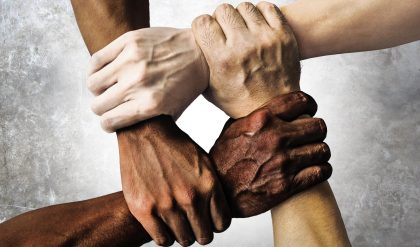Human rights are relevant to all of us, not just those who face repression or mistreatment.
They protect you in many areas of your day-to-day life, including:
- your right to have and express your own opinions
- your right to an education
- your right to a private and family life
- your right not to be mistreated or wrongly punished by the state
Where do human rights come from?
The idea that human beings should have a set of basic rights and freedoms has deep roots in Britain.
Landmark developments in Britain include:
- the Magna Carta of 1215
- the Habeas Corpus Act of 1679
- the Bill of Rights of 1689
The Universal Declaration of Human Rights
The atrocities of the Second World War made the protection of human rights an international priority.
The United Nations was founded in 1945.
The United Nations allowed more than 50 Member States to contribute to the Universal Declaration of Human Rights, adopted in 1948.
This was the first attempt to set out at a global level the fundamental rights and freedoms shared by all human beings.
